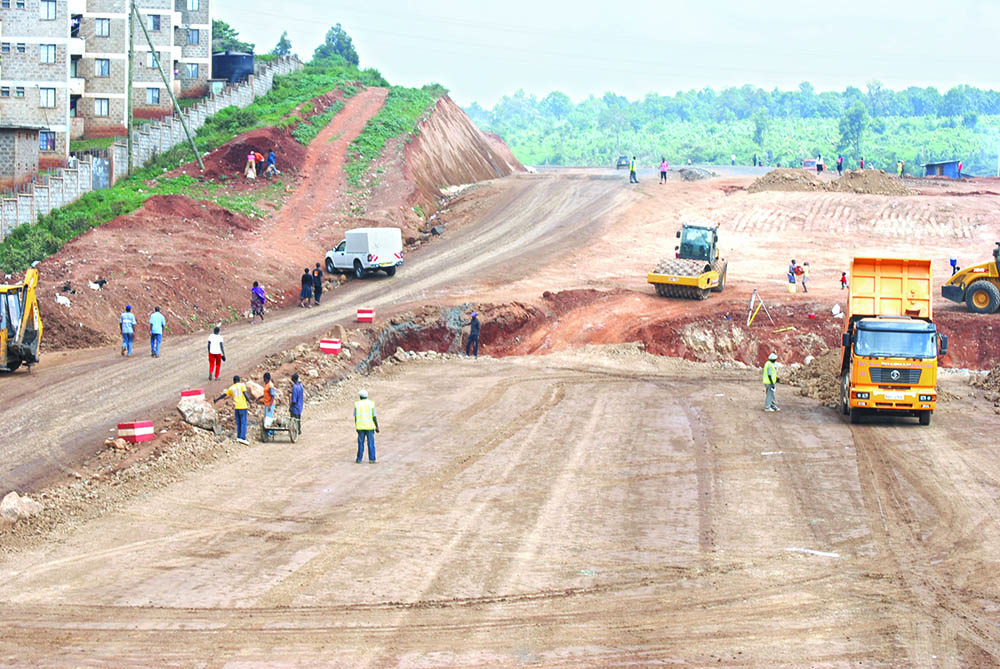
The UK’s National Audit Office has said that the Department for Transport (DfT) and National Highways will need to make difficult decisions in prioritising road upgrade projects. According to the National Audit Office, delays to road projects and inflationary pressures mean that, by March 2025, National Highways will have undertaken less on road improvement and maintenance works and at a higher cost than originally planned.
The second Road Investment Strategy, which covers the 5 years between April 2020 and March 2025, initially set out that the UK Government would spend £27.4 billion on the network. This included £14.1 billion earmarked for a total of 69 road projects (almost double the £7.7 billion budget for the previous five years). Within these 69 projects were nine that were classified as ‘Tier 1’ – typically costing more than £500 million or that are novel, contentious, involve complex engineering work or detailed consultation with stakeholders.
However, inflation, delays to road projects and changes in government priorities have created risks to the deliverability, affordability, and value for money of National Highways’ enhancement portfolio, issues which could be carried forward into the third road investment period (2025-2030).
In 2021, it became clear that delivery could not be implemented as planned. DfT reduced the total number of projects (down from 69 to 58) and reduced National Highways' budget for road enhancements by £3.4 billion (27%). The costs of the projects remaining in the revised portfolio, however, have continued to rise. As of September 2022, costs have increased across the portfolio of projects by approximately £3.3 billion.
While the NAO recognises that National Highways created a £1.16 billion contingency budget to address emerging risks, these funds will not be able to cover the increased costs. Over half of the contingency funds were allocated between the setting of the draft budget in 2018 and the publishing of the delivery plan in 2020. By July 2022, National Highways had allocated £1.19 billion of contingency funds, more than the original budget.
In March 2022, National Highways reported that that a third of projects in the revised plan were at risk of delay, the primary reason being the difficulty in securing development consent. The NAO concluded that both National Highways and DfT could have done more to plan for and manage the potential risks to their portfolio of enhancement works. In the second Road Investment Strategy National Highways had planned to obtain consent for 33 infrastructure projects but by May 2022 had experienced delays in receiving or applying for development consent on 12 of the projects. In most of the cases additional work was required to show how road projects complied with evolving government policy relating to environmental standards, with some projects being legally challenged by stakeholders in relation to their cumulative carbon impact.
In the short-term, NAO has recommended that DfT and National Highways should, working alongside HM Treasury, develop a response to the current inflationary pressures, addressing the implications this will have for the cost of planned projects. They should also work with other government departments to ensure that they are taking account of wider government policies; this will allow development consent applications to be more efficiently prepared for submission.
In the longer-term, National Highways needs to make further improvements to its management of risks that could have an impact upon the delivery of the third Road Investment Strategy.
Gareth Davies, the head of the NAO, said: “The Department for Transport and National Highways put together an extensive road investment plan that has been unfortunate to coincide with the COVID-19 pandemic and rising inflation.
Nevertheless, more could have been done to manage risks. Delays to projects have meant that less work has been delivered than planned and at a higher cost.
DfT and National Highways must now fully address the rising cost of its revised portfolio of projects, undertaking a review of all road plans that it plans to move into the time-period of its third road strategy (2025-2030). This review must consider if these projects remain feasible and provide optimal value for money.”












